Dong Thap: From corn cobs and rice husks, Dr. Tran Duc Tuong researched growing red reishi mushrooms instead of rubber sawdust, giving higher productivity and better biological activity.
Since 2015, Dr. Tran Duc Tuong, 53 years old, Dong Thap University, has begun researching the use of corn cobs and rice husks to grow red reishi mushrooms. Previously, mushroom growers often used rubber tree sawdust, but research experiments have shown that the nutritional content of corn cobs is higher, helping to increase productivity and economic efficiency.
Mr. Tuong said that corn cob and rice husk by-products are always available and abundant in the Mekong Delta, so transportation costs will be reduced and raw materials will always be available compared to rubber sawdust which must be sourced from the Southeast region. These two by-products have high cellulose and nutritional content, so they are very suitable for producing high-quality red reishi mushrooms. He said that there has never been any research on the effective use of these agricultural by-products before.
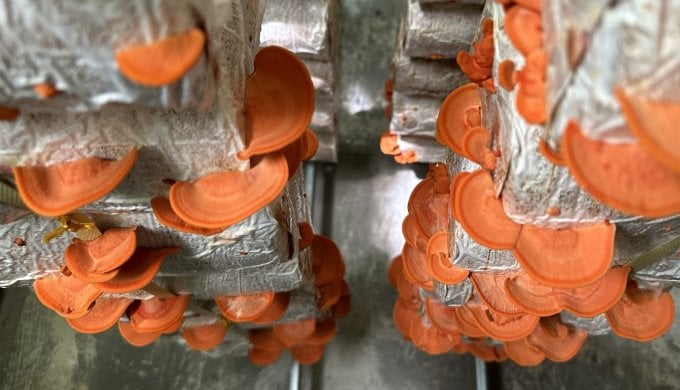
Red Reishi mushroom. Photo: Research team
Red reishi mushroom ( Pycnoporus sanguineus ) belongs to 25 main medicinal mushroom species with high medicinal value, the mushroom is rich in natural compounds that are beneficial to health. Dr. Tuong said that the original strain of red reishi mushroom was collected from Tay Ninh province.
According to the project leader, the most successful result of the research was finding a suitable substrate (corn cob) and optimal conditions to increase productivity compared to traditional substrates. Experiments determined that the growing substrate with a mixing ratio of 60% corn cob and 40% rice husks was most suitable for the mycelium to grow well and cover the spawn bag the fastest. The mushroom yield was high, reaching a biological efficiency of up to 20.52% (205.2 kg of fresh mushrooms/ton of dry substrate).
The experimental production model (2,000 embryos) applying the technological process from the research results achieved high efficiency, biological efficiency of 20.71%, surpassing that of growing on rubber sawdust (16.62%). He said that the time for a production season from breeding to cultivating and producing dried mushroom fruiting bodies is on average about 4 - 5 months.
The research team has designed a production technology process with simple, easy-to-implement techniques, feasible, and can be applied appropriately to the technical level and local conditions. Currently, the technology process has been applied at the Dong Thap Province High-Tech Agricultural Application Center and a number of home-based production and business establishments, and is ready to transfer the technology to farmers and businesses to commercialize the product. Mr. Tuong added that the use of corn cobs and rice husks showed an economic efficiency (model on a scale of 2,000 embryos) of 964.87%, higher than growing on rubber sawdust of 727.68%.
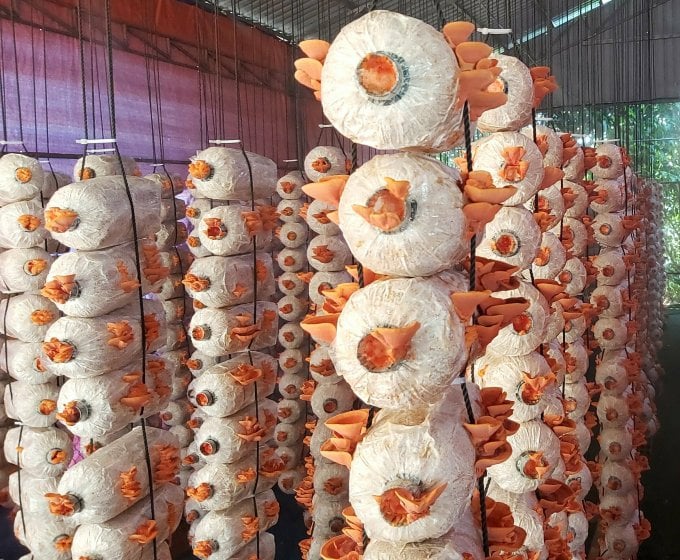
Red reishi mushroom production facility. Photo: Research team
Studies on toxicity and biological effects show that red reishi mushroom has the effect of improving health, enhancing immunity, preventing thrombosis, reducing blood fat, stabilizing blood glucose, anti-oxidation, protecting the liver, antibacterial, anti-cancer and safe to use. Red reishi mushroom has high medicinal and economic value, the dried finished product is currently priced at more than 2 million/kg, but the investment cost for production is not high, it can be produced year-round from readily available and abundant raw materials.
His research won first prize at the 16th Dong Thap Province Technical Innovation Contest in 2020 - 2021. In 2023, Dr. Tuong's work was honored in the Vietnam Golden Book of Creativity.
Dr. Tran Duc Tuong is currently a lecturer at the Faculty of Natural Sciences, Dong Thap University. He graduated with a bachelor's degree in Biology Education, then continued his studies for a master's and doctoral degree in Biotechnology at Can Tho University. He has published 21 scientific works, chaired and participated in nearly 20 scientific and technological research projects at the ministerial, provincial and grassroots levels, and published 5 textbooks and lectures.
Nhu Quynh
Source link


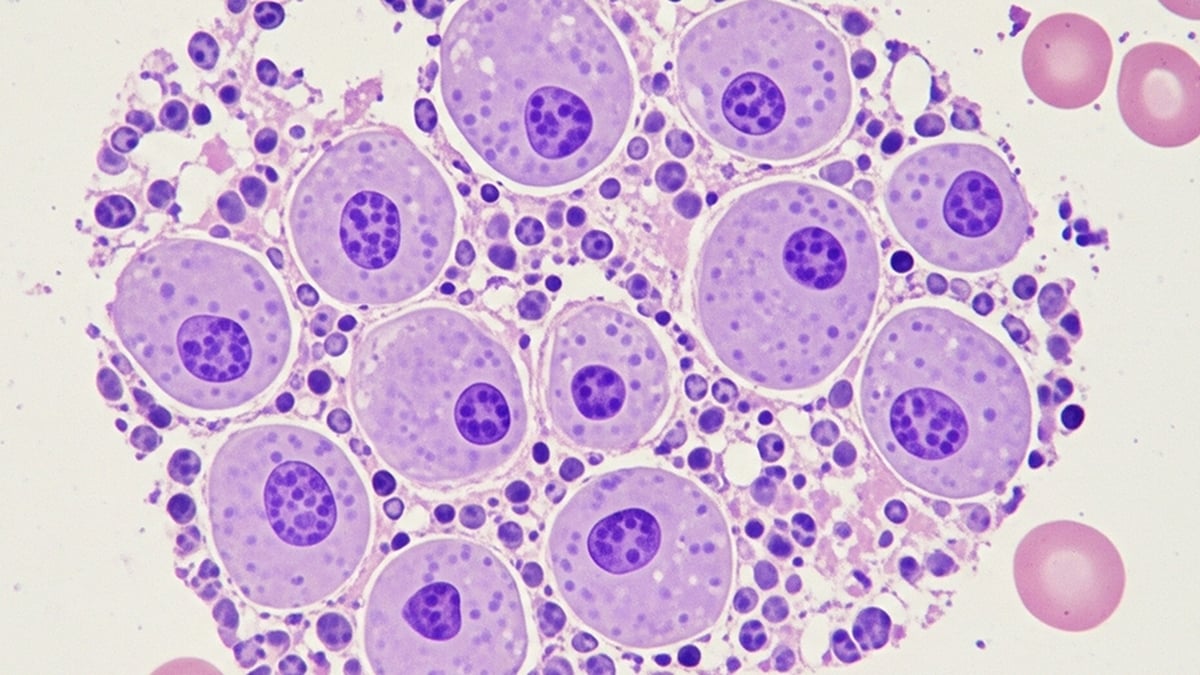
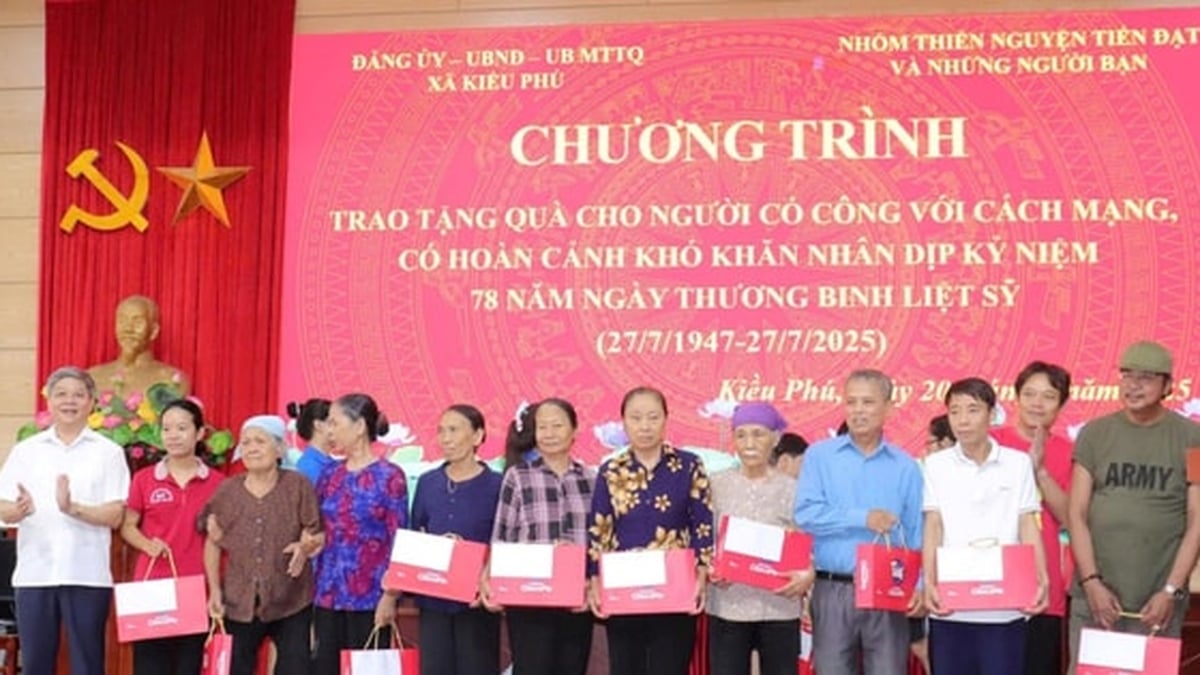


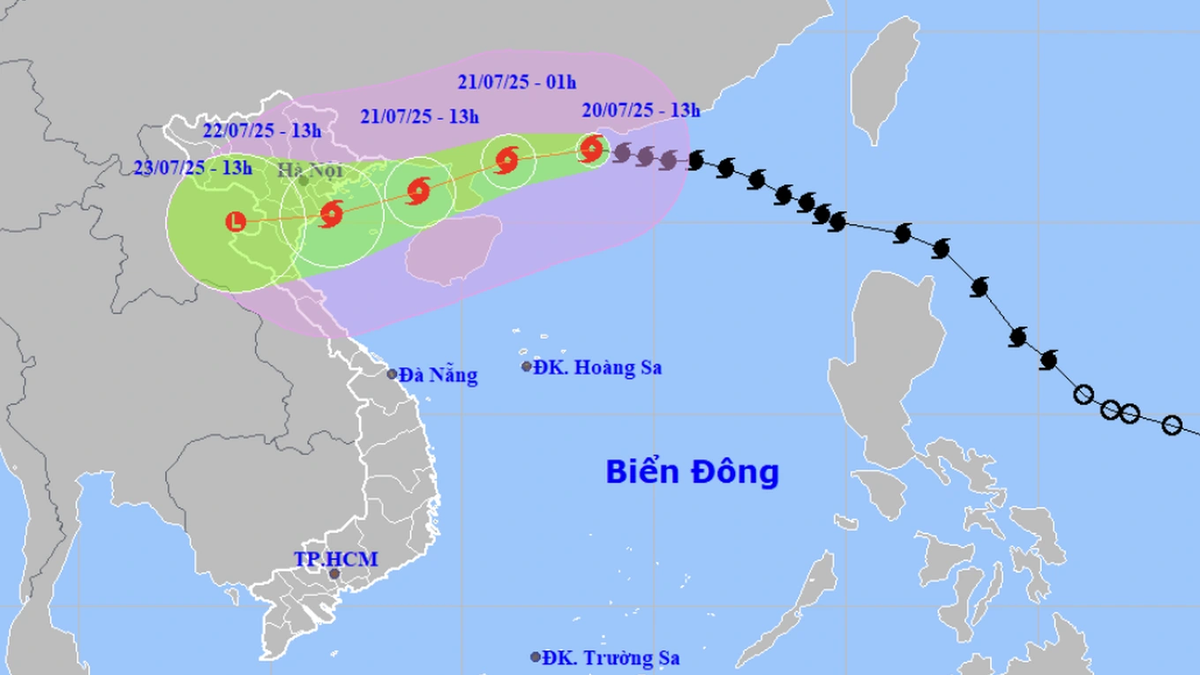
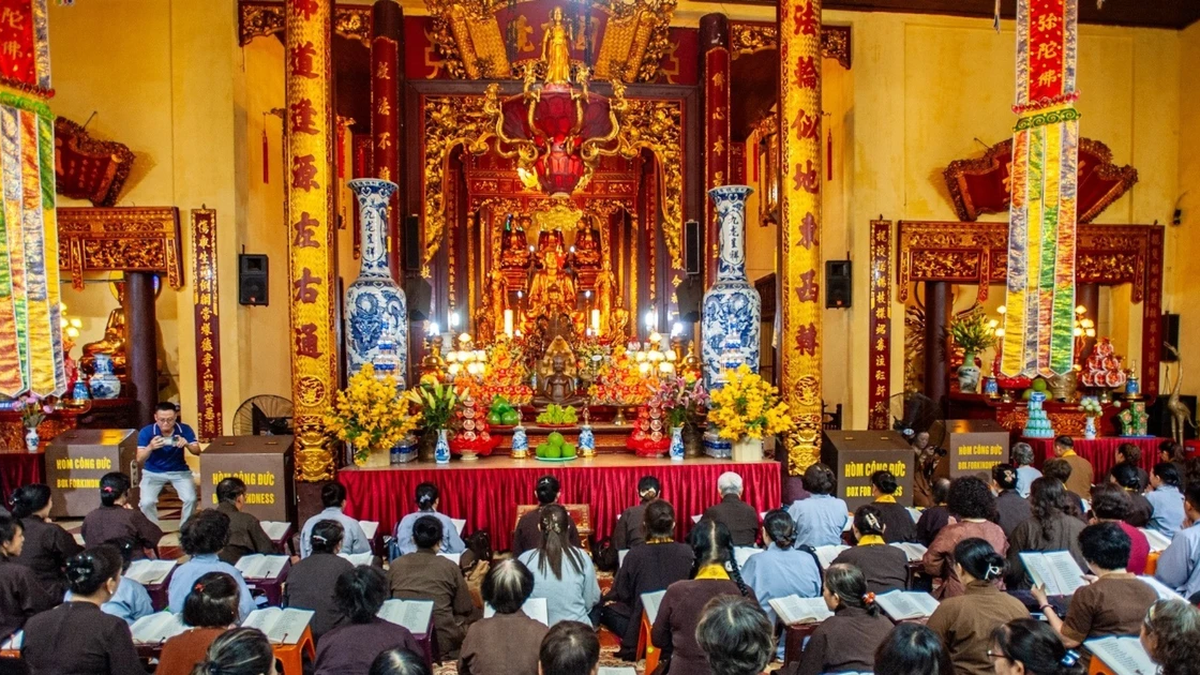



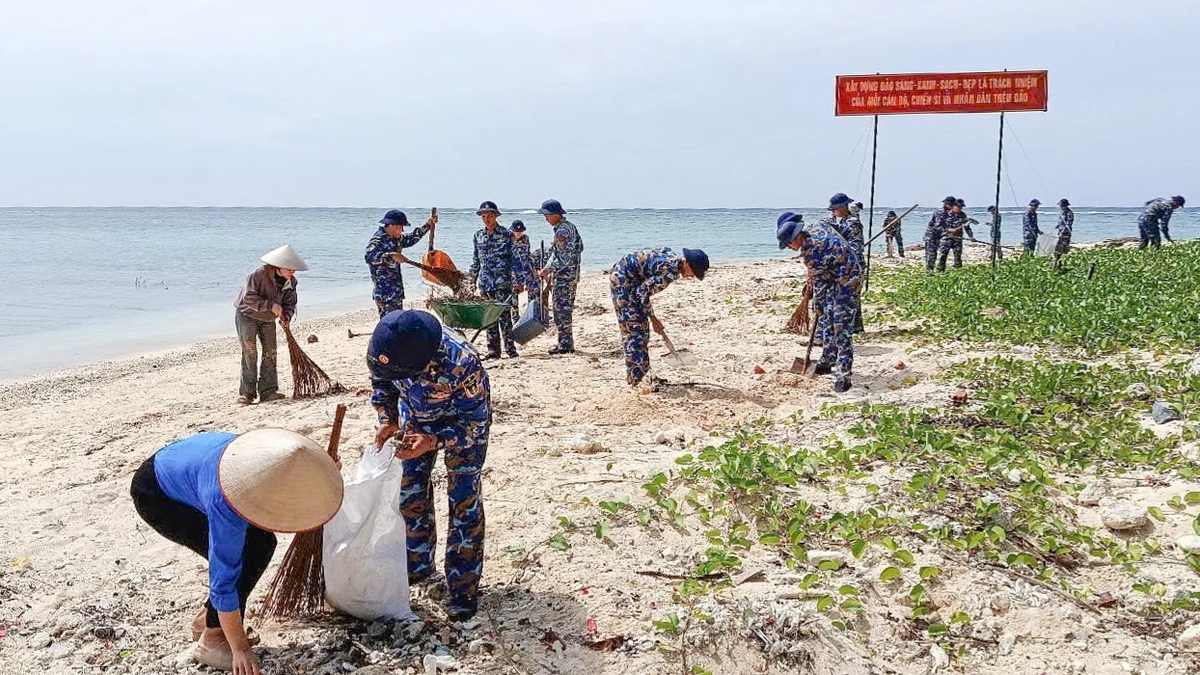


















![[Photo] National Assembly Chairman Tran Thanh Man visits Vietnamese Heroic Mother Ta Thi Tran](https://vphoto.vietnam.vn/thumb/1200x675/vietnam/resource/IMAGE/2025/7/20/765c0bd057dd44ad83ab89fe0255b783)




































































Comment (0)